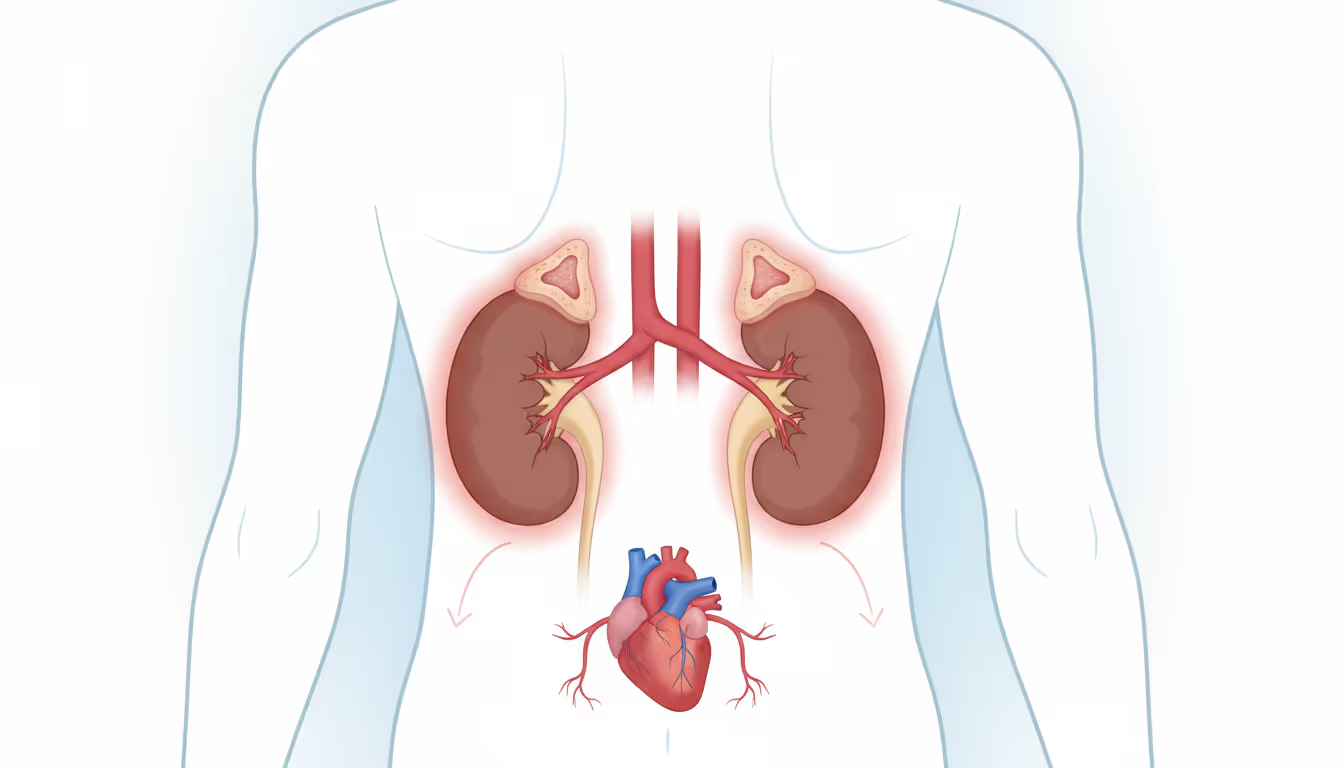
Adrenal insufficiency occurs when the adrenal glands fail to produce adequate levels of hormones necessary for regulating critical functions, including blood pressure. Located above the kidneys, the adrenal glands consist of an outer layer called the cortex and an inner section known as the medulla. These glands are responsible for releasing hormones that influence heart rate, blood pressure, metabolism, and other essential bodily processes. They secrete hormones and mineralocorticoids that manage the balance of minerals like sodium in the bloodstream. The medulla produces adrenaline and noradrenaline (norepinephrine). Adrenaline is released in response to low glucose levels, physical activity, and stress, promoting the conversion of glycogen to glucose in the liver, the release of fatty acids from adipose tissue, the dilation of small arteries in muscles, and increased cardiac output. Noradrenaline acts as a neurotransmitter for most sympathetic nerve fibers. Addison's disease is a chronic condition characterized by the insufficient functioning of the adrenal cortex, often due to damage from physical trauma, infections, or autoimmune destruction of ACTH-secreting cells, which typically stimulate the adrenal glands. Symptoms include skin darkening, fatigue, and weight loss. Notably, U.S. President John F. Kennedy suffered from Addison's disease, which was first described by British physician Thomas Addison in the 19th century.




